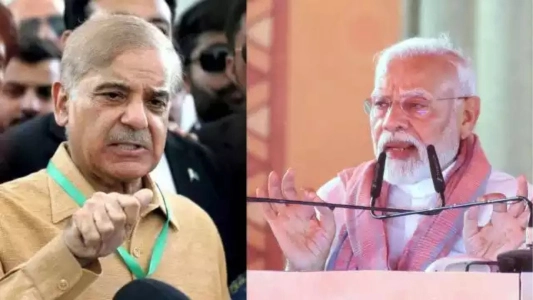Table of Contents
In a concerning escalation of border tensions, India and Pakistan have exchanged small arms fire along the Line of Control (LoC) for the fourth consecutive night. This follows the devastating Pahalgam attack, where a brutal terrorist strike claimed the lives of 26 tourists on April 22, 2025, in Jammu and Kashmir. The latest developments mark a serious flashpoint between the two nuclear-armed neighbors, with global calls for restraint growing louder.
The Attack That Sparked It All: Pahalgam Tragedy

The Pahalgam attack` has sent shockwaves across India, leading to a major crackdown on suspected militant networks in the region. The Indian authorities have accused Pakistani-backed militants of orchestrating the massacre, identifying two of the prime suspects as Pakistani nationals. Despite India’s strong allegations, Pakistan has denied any involvement, demanding an independent and impartial investigation into the incident.
Security forces in India have since launched an extensive search operation, combing through more than 1,000 locations in the Kashmir valley. Approximately 500 individuals have been detained as part of the investigation. Some properties have also been demolished as the authorities attempt to dismantle any support structures for militant groups operating within Indian territory.
Continuous Fire at the Line of Control
As part of the fallout from the Pahalgam attack update, small arms fire has been reported nightly across the LoC. Although no fatalities have been officially reported in the latest exchange, the persistent gunfire is a stark reminder of the fragile peace in the region. Both sides accuse each other of initiating the firing, while residents in nearby villages continue to live under the constant threat of violence.
Diplomatic Fallout: Treaties Suspended, Airspace Closed
The tensions have rapidly spilled over into the diplomatic sphere. India has taken the extraordinary step of suspending the Indus Waters Treaty, a vital agreement that governs river water sharing between the two countries since 1960. Meanwhile, Pakistan has retaliated by closing its airspace to Indian flights, a move that has disrupted regional aviation and further strained ties.
The worsening situation has drawn global attention. China has urged both nations to exercise maximum restraint, emphasizing the risks posed by any escalation between two nuclear powers. Similarly, the United States has condemned the Pahalgam attack and expressed deep concern over the rising tensions. American officials have initiated dialogue with both New Delhi and Islamabad, urging them to seek a “responsible solution” through diplomatic means.
The Resistance Front Controversy
In the immediate aftermath of the attack, the militant group known as The Resistance Front (TRF) claimed responsibility through a post on social media. However, within hours, TRF issued a counter-statement alleging their platform had been compromised by hackers and denied any role in the attack. This confusion has complicated the investigation, although Indian officials maintain that they possess concrete evidence linking Pakistani militants to the atrocity.
Financial Markets React to Geopolitical Stress
The latest India news also includes the impact of these events on the country’s financial markets. The Indian rupee has experienced significant volatility, while government bonds have shown signs of strain. Experts attribute the instability directly to fears of a larger military conflict with Pakistan. Investors are closely monitoring the situation, awaiting signs of diplomatic de-escalation.
Calm Amid Chaos in Border Villages
Interestingly, despite the nightly exchange of gunfire, life in many border villages remains surprisingly resilient. Residents on both sides of the LoC have continued their daily activities, although the fear of escalation is palpable. In the Pakistan-administered side of Kashmir, local communities have expressed a strong desire for peace, emphasizing that they do not wish to be caught in the crossfire of political disputes.
What Lies Ahead?
As of now, no signs of an immediate military operation have emerged beyond the security crackdowns within Kashmir. However, the aggressive posturing from both sides suggests that relations will remain strained for the foreseeable future. Analysts warn that without swift diplomatic intervention, the situation could deteriorate further.
For India, the Pahalgam attack update represents a sobering reminder of the ongoing security challenges in Kashmir and the broader strategic concerns regarding cross-border militancy. For Pakistan, the accusations and subsequent diplomatic backlash present new hurdles on the international stage.
The world now watches anxiously as India and Pakistan navigate one of their tensest periods in recent memory.
Stay connected with us for more real-time updates at The Instant News – your fastest source for the latest India news and world developments.


